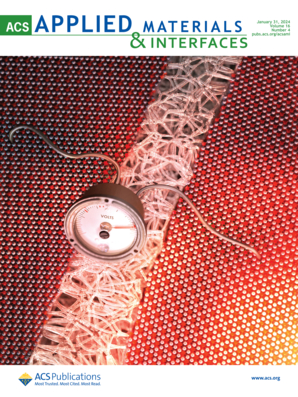异体和异种胰岛移植中免疫反应和免疫抑制剂的前沿技术
IF 8.3
2区 材料科学
Q1 MATERIALS SCIENCE, MULTIDISCIPLINARY
引用次数: 0
摘要
作为治疗糖尿病的一种有效方法,胰岛移植近年来引起了广泛关注和研究。然而,免疫排斥反应和免疫抑制剂的毒性仍然是影响胰岛移植成功与否的关键因素。虽然免疫抑制剂对减少免疫排斥反应至关重要,并能显著提高胰岛移植的存活率,但这些药物的不当使用会明显增加移植后的死亡率。此外,目前的胰岛器官捐献无法满足器官移植的需求,因此异种移植成为解决器官短缺的重要方法。本综述将涵盖以下三个方面:1) 同种异体胰岛移植过程中发生的免疫反应,包括三个阶段:炎症和 IBMIR、同种异体胰岛移植过程中发生的免疫反应:炎症和 IBMIR、异体免疫反应和自身免疫复发;2)异体胰岛移植中常用的免疫抑制剂,包括钙神经蛋白抑制剂(环孢素 A、他克莫司)、霉酚酸酯、糖皮质激素和硼替佐米;3)异种胰岛移植的早期和晚期免疫反应,以及三联疗法(ECDI-固定供体脾细胞(ECDI-SP)+抗CD20+西罗莫司)对异种移植的免疫效应。本文章由计算机程序翻译,如有差异,请以英文原文为准。
Cutting edge of immune response and immunosuppressants in allogeneic and xenogeneic islet transplantation
As an effective treatment for diabetes, islet transplantation has garnered significant attention and research in recent years. However, immune rejection and the toxicity of immunosuppressive drugs remain critical factors influencing the success of islet transplantation. While immunosuppressants are essential in reducing immune rejection reactions and can significantly improve the survival rate of islet transplants, improper use of these drugs can markedly increase mortality rates following transplantation. Additionally, the current availability of islet organ donations fails to meet the demand for organ transplants, making xenotransplantation a crucial method for addressing organ shortages. This review will cover the following three aspects: 1) the immune responses occurring during allogeneic islet transplantation, including three stages: inflammation and IBMIR, allogeneic immune response, and autoimmune recurrence; 2) commonly used immunosuppressants in allogeneic islet transplantation, including calcineurin inhibitors (Cyclosporine A, Tacrolimus), mycophenolate mofetil, glucocorticoids, and Bortezomib; and 3) early and late immune responses in xenogeneic islet transplantation and the immune effects of triple therapy (ECDI-fixed donor spleen cells (ECDI-SP) + anti-CD20 + Sirolimus) on xenotransplantation.
求助全文
通过发布文献求助,成功后即可免费获取论文全文。
去求助
来源期刊

ACS Applied Materials & Interfaces
工程技术-材料科学:综合
CiteScore
16.00
自引率
6.30%
发文量
4978
审稿时长
1.8 months
期刊介绍:
ACS Applied Materials & Interfaces is a leading interdisciplinary journal that brings together chemists, engineers, physicists, and biologists to explore the development and utilization of newly-discovered materials and interfacial processes for specific applications. Our journal has experienced remarkable growth since its establishment in 2009, both in terms of the number of articles published and the impact of the research showcased. We are proud to foster a truly global community, with the majority of published articles originating from outside the United States, reflecting the rapid growth of applied research worldwide.
 求助内容:
求助内容: 应助结果提醒方式:
应助结果提醒方式:


